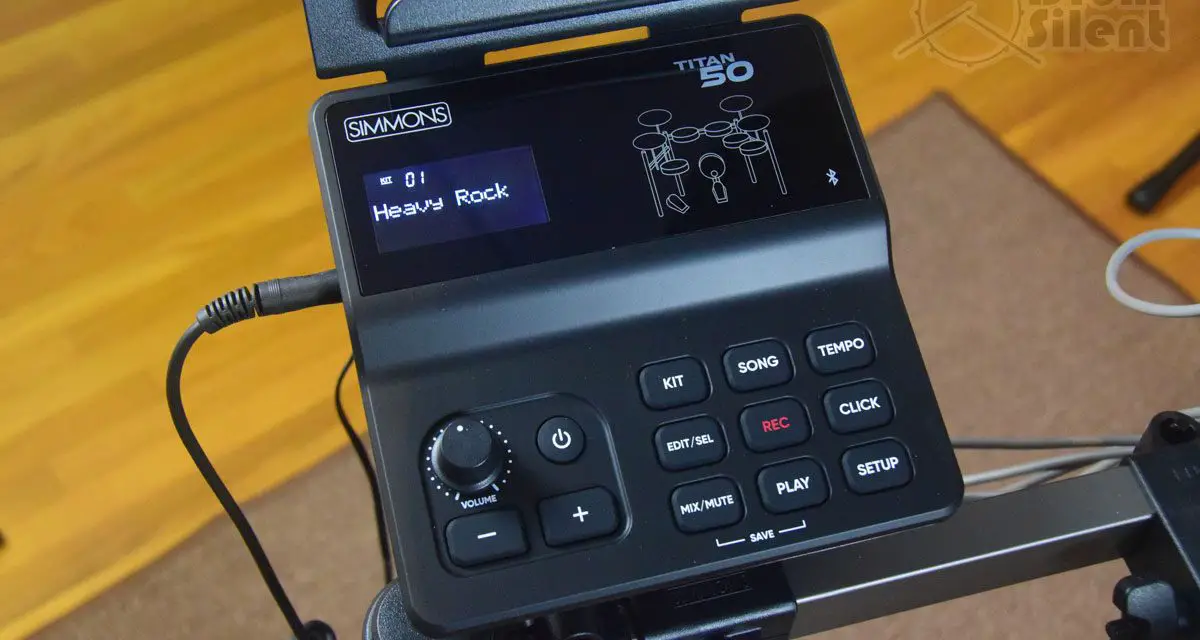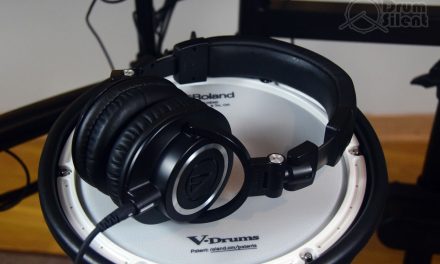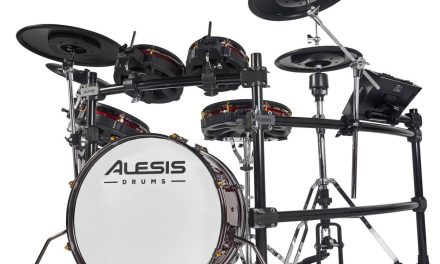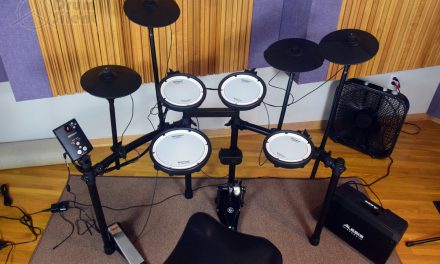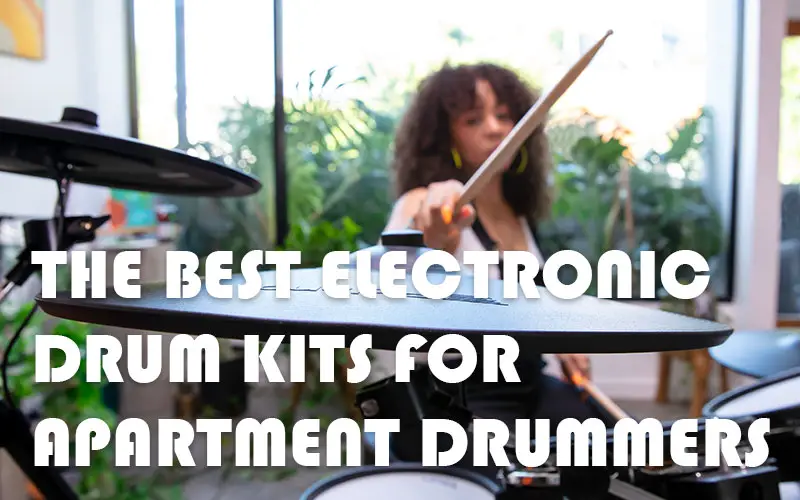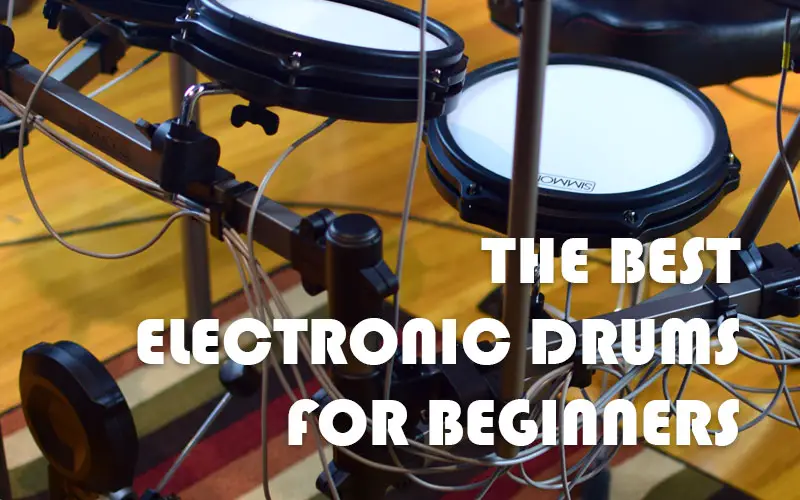Electronic drum kits are starting to implement Bluetooth more often, and it’s usually used for connecting devices such as smartphones and tablet so that you can play along with music.
How Bluetooth Works on Electronic Drum Kits
Bluetooth has been a popular wireless audio option for while now, and it’s starting to show up more on the electronic drum scene. Most drum modules that use Bluetooth only use it as a sort of wireless auxiliary port, meaning that you can connect your Bluetooth enabled devices, such as cell phones and tablets, to the drum module to play back music and play along. This is very similar in the way you might connect your device to a Bluetooth speaker for playback.
If your drum module supports Bluetooth in this way, it makes it really easy to play along with music or other audio tracks you have for practice or otherwise, and you don’t need to get any cables involved which is always a plus. Myself, I have a drum practice playlist loaded on my phone and it’s nice to be able to just connect and play along without having to also keep another cable around.
MIDI Over Bluetooth
Some drum modules have the ability to either send or receive MIDI signals over Bluetooth. When this option is available, you can output MIDI signals for recording via Bluetooth or possibly trigger the drum module via MIDI over Bluetooth. This is a less common features, but it’s starting to pop up more on some advanced drum modules.
The MIDI signals will experience latency delay, but if you can compensate for that in your DAW it could work for recording. So if you’re considering using MIDI for recording, you’ll be better off using MIDI over USB instead since there will be no latency issues involved.
Bluetooth Headphones Won’t Work Though
Even though Bluetooth is being used more on drum modules, there still are some hang-ups when it comes to using wireless Bluetooth headphones. Basically, Bluetooth headphones won’t work with drum modules, and there is no audio output from the drum modules via Bluetooth – only audio input.
This is due to the latency issues with Bluetooth. There is usually an audio delay of 100ms or more with Bluetooth that kills any ability to use them with electronic instruments. Imagine striking a drum pad and hearing the sound half a second or more later. That wouldn’t work very well for drumming and that’s why Bluetooth headphones aren’t used with electronic drums.
So if you see a drum module that has Bluetooth features, keep in mind that it’s probably for connecting a Bluetooth device to play along with, and possibly also for transmitting MIDI signals. To be 100% sure, it’s best to find the manual online for any specific drum kit you are interested in and see what specific features are Bluetooth enabled just to make sure, since it can vary.

